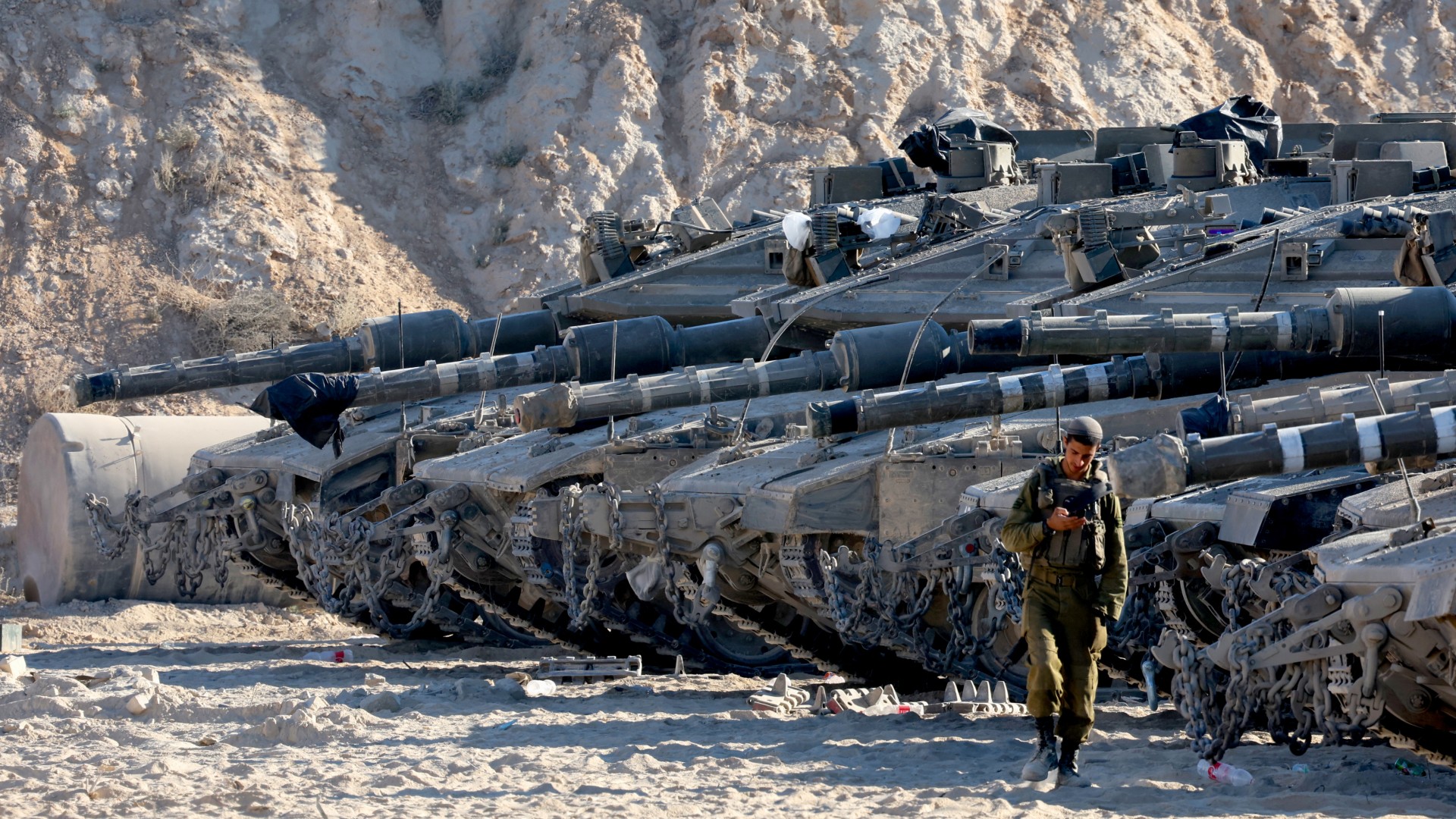Arab states received 12 percent of Israeli arms exports in 2024 amid surge in arms sales

Israel’s Ministry of Defence announced on Wednesday that arms exports by Israeli companies reached an all-time high in 2024, totalling $14.8bn.
“The unprecedented operational achievements, combined with the combat experience gained through Israeli-developed technologies during the war, have generated significant demand for Israeli defence systems among numerous countries,” the ministry stated, attributing the surge in exports to the ongoing military offensive on Gaza, which began in October 2023.
According to TheMarker, arms exports rose by 13 percent compared to 2023, when exports stood at $13.1bn. The 2024 figure represents roughly 10 percent of Israel’s total exports of goods and services, according to data published by the outlet.
This marks a record year for Israeli arms exports, which have more than doubled over the past five years; in 2019, total exports amounted to $7.3bn.
Europe emerged as the primary destination for Israeli arms, accounting for 54 percent of total purchases – up nearly 20 percentage points from 2023, when European countries made up 35 percent of Israel’s arms export market.
New MEE newsletter: Jerusalem Dispatch
Sign up to get the latest insights and analysis on Israel-Palestine, alongside Turkey Unpacked and other MEE newsletters
In 2024, European states bought nearly $8bn worth of Israeli military products, compared to $4.6bn in 2023, according to the Ministry of Defence.
Beyond Europe, another significant destination for Israeli arms in 2024 was the group of countries that normalised relations with Israel under the Abraham Accords. Combined arms sales to the United Arab Emirates, Bahrain, Morocco and Sudan reached $1.8bn – equivalent to 12 percent of Israel’s total arms exports.
In contrast, there has been a marked decline in exports to Asian and Latin American countries. In 2024, Asian nations purchased $3.4bn worth of Israeli weapons, down from $6.3bn the previous year. According to TheMarker, the drop is attributed to major arms deals signed in 2023 with India and Azerbaijan that were not repeated in 2024.
The surge in arms exports comes amid Israel’s ongoing military campaign in Gaza, now approaching its 20th month, which has resulted in the deaths of over 54,000 Palestinians and destroyed most of the Palestinian enclave.
In recent months, Israel has faced mounting international criticism – particularly from European partners – over Gaza, including allegations of using starvation as a weapon of war and of committing genocide.
A recent survey conducted in the UK found that a majority of the British public supports a full arms embargo on Israel. According to the poll, 57 percent of respondents backed a government-imposed embargo, while only 13 percent were opposed.
On Tuesday, it was reported that the Spanish government had cancelled a $327m arms deal with Israeli defence company Rafael. The contract involved the purchase of offensive weaponry, including 168 firing posts and 1,680 anti-tank missiles.
Yair Coles, head of the International Defense Cooperation Directorate, the Ministry of Defence division overseeing Israeli arms exports, told Israeli news outlet Ynet: “We are facing a serious challenge. Members of parliament are openly calling for a halt to arms purchases from Israel because of the images coming out of Gaza, and this is having an effect. Today, customers are telling us this directly.”
Coles added: “Sales to France and the UK are very low. Two forces are currently at work: military establishments that want to buy the best equipment from us, and political forces holding back. I hope that necessity will prevail over politics.”
A national achievement
According to defence ministry data, nearly half (48 percent) of Israel’s arms exports consist of air defence systems, missiles and rockets. Other categories, including military and armoured vehicles, radar systems, manned aircraft and satellites, each account for between 8 and 9 percent of total exports.
Israeli human rights lawyer and arms trade monitor Eitay Mack told TheMarker that Israeli arms exports could rise further in 2025.
“Due to escalating tensions between India and Pakistan, we may see a spike in arms deals with India,” Mack said. “Additionally, the effects of the increased security budgets in Europe – driven by shifting relations with the United States – will likely be felt only in 2025.”
'The world sees Israel's strength and wants to be part of it'
- Israel Katz, Israeli defence minister
However, Mack cautioned that some countries may shift away from Israeli weapons in favour of American arms as part of efforts to improve trade balances with the United States.
“In the context of the tariff war declared by [US President Donald] Trump, some countries may prefer to buy from the US rather than from Israel,” he added.
Defence Minister Israel Katz praised the export figures, calling them a national achievement. “In a year of war, under complex and difficult conditions, Israel has broken its all-time arms export record,” Katz said.
He attributed the success to Israel’s battlefield performance: “This is a direct result of the IDF’s and defence industries’ achievements against Hamas in Gaza, Hezbollah in Lebanon, the Houthis in Yemen, the Ayatollahs’ regime in Iran, and other enemies.”
Katz added, “The world sees Israel’s strength and wants to be part of it.”
Defence Ministry Director General Amir Baram echoed the sentiment.
“Israeli arms exports reflect, more than anything, a growing global appreciation for Israeli technology. Our systems have made a resounding impact across the Middle East over the past year,” he said.
Coles also credited the collaboration between the defence sector and the military. “The unique link between Israeli arms companies, the Ministry of Defence, and the IDF creates a distinct competitive edge in global markets,” he said.
According to Coles, during the war in Gaza, Israel’s defence industries demonstrated that they could “meet the IDF’s operational needs while simultaneously responding to growing international demand”.
middleeasteye.net